North Koreans Learning English | Interview with LELP Student & Volunteer
As North Korean refugees resettle in South Korea’s competitive society, conversational English ability has been identified as a top need for personal and professional growth.
The LiNK English Language program (LELP) has become a mainstay in our efforts to help build the capacity of North Koreans as agents of change. Students are matched 1:1 with volunteer tutors from all around the world, leading to customized practice, conversations that break down barriers, and connections that will last a lifetime. In addition to weekly virtual study sessions, the program includes in-person bonding activities and a semesterly speech contest.
Spring 2024 has been the program’s biggest semester yet with 156 participants, including 78 North Korean students and 78 volunteers! Meet Stella, a North Korean student pursuing her PhD in Economics, and Cydney, a long-time LELP volunteer from the United States.

Please briefly introduce yourselves and share how you first met!
Stella - Hi, I’m Stella from North Korea. I’m currently living in South Korea and working towards getting my PhD in Economics.
Cydney - I’m Cydney, I’m from the US. I’ve been in South Korea for four years, teaching English at a hagwon. I’ve been a volunteer with LELP for two years now.
Stella - I don’t exactly remember when we met, it’s been so long!
Cydney - I think it was at the LELP hiking event! That was our first time meeting in-person.
Stella - Right, I was a little nervous then.
Cydney - Now we meet up all the time, going out for drinks and finding new places to check out in Seoul.
What has been your favorite activity during the program?
Stella - I really enjoy the speech contest. I can share my story and everyone is so attentive - the other North Korean students, volunteers, and LiNK staff. At other places, they’ll give you fixed questions that you have to answer. But LiNK gives you complete control over what you want to talk about.
People say North Koreans come from a prison, and sadness is the primary emotion. But in my experience, there is happiness even in the small things. I love to talk about those stories, my childhood memories.
First I’ll write my speech in Korean, and then I’ll write it again in English with Cydney’s help. I say what I want to express and she’ll help me.
Cydney - Sometimes I’ll write five different sentences and explain the nuances to Stella, and then she’ll go ‘okay that one, that’s how I want to say it.’
Stella - The days leading up to the speech content, I have so many feelings and emotions while I’m busy preparing. But afterwards, I feel a sense of relief. I love it because by sharing my story, I’m realizing new things about myself.
Cydney - I’m usually crying when she finishes delivering her speech. I’m just so happy and proud of all her hard work, and she’s so good at it. Hearing the speeches of the other students is also always so inspiring.

Is there a moment or everyday interaction where you felt LELP helped you?
Stella - Yes, there is. This semester I’m taking a microeconomics seminar and the class goes into English all the time. The professor asks us questions, and we have to answer in English. If I wasn’t part of LELP, then I would have never thought about raising my hand and talking with confidence. Even if my grammar isn’t perfect, I can still comfortably share my thoughts.
What are your dreams or goals?
Stella - I have a big dream. I want to be a professor someday, at the undergraduate or graduate level. More than just teaching a certain topic or subject, I hope to instill in my students a love of learning. That’s what my teacher back in my hometown did for me. I’ve been able to come this far because of her, and she continues to inspire me to this day.
In North Korea, education opportunities are limited. But my teacher always tried to help me. She told us that if we had big dreams, then we can grab the chance to make it happen. She taught me a lot of things, about life and to see more than our current circumstances. I think about her all the time, even now, and I want to be like her - a good teacher and a good person.
I consider this my third chance at life. First I just survived in North Korea, and second in China. Now in South Korea, I can finally live freely.
Cydney - I love this story. Since I know Stella wants to be a professor, I also asked why, and she shared her memories from growing up in North Korea. Knowing that she’s wanted to do this for so long, it just makes sense.
As for my future goals, I don’t have anything concrete like teaching, but I want to help people. I want to use all the things I learn and that I’m interested in to help people find themselves. LELP has given me a great opportunity to meet new friends from different backgrounds and be a part of this meaningful cause as a volunteer.

Has being part of this program changed your perspective on North Korea?
Cydney - Yes, definitely. Before LiNK, I had read a lot of books and biographies from North Koreans. With that kind of exposure, you hear a lot of the hard stuff. Very inspirational stories about incredible people, but tough to read. I wanted to get a bigger picture of the issue, and that naturally led me to LiNK. After volunteering with LELP for two years, my perspective has not just changed, but really expanded.
I’ve had a lot of conversations with Stella where the contexts of what we’re talking about could not be more different, but our experiences are very much the same. It’s brought this universal view of people doing their best to live their lives, and connecting over it.
Stella - A lot of times, people want to hear hard stories from North Koreans. If you talk about your happiness, they ask ‘Why are you here then? You can go back there.’ It always surprises me - how can they say something like that? People living anywhere, have both happy times and difficult situations. But they don’t want to hear positive things from North Korea, they just want to hear that you were living in hell.
But LiNK is different. I feel like I can just talk comfortably. It has made me want to continue this program. Other places have a political focus but LiNK doesn’t, just real human stories.
Cydney - It’s one of my favorite things about how LiNK shares stories of North Koreans. They don’t shy away from the hardship, but they’re showing happy, thriving people and smiling faces. It’s not, ‘come to our page to learn about our sadness,’ but ‘learn about these real people whose experiences we want to share.’
Did LiNK’s program further your interest in sharing North Korean stories and experiences?
Stella - Actually we planned it, we talked about her drawing pictures and me writing the stories.
Cydney - It’s still very much in the talking phase, but it’s been my dream to make a webtoon! We’ve thought about creating one together about a little North Korean girl and sharing Stella’s experiences through this format.
My undergraduate degree was in history, so I spent a long time studying situations similar to what happens in North Korea. It’s hard for me to know that I live in a time where people go through such things, especially people close to me, like Stella. I think what LiNK does is so important because it’s trying to change the narrative and what the history of North Korea will be. If I can have any part of it, I want to do what I can.

What is something that each of you learned from each other?
Stella - Cyndey is just such a strong person. Before I met her, I thought I was strong, but we shared our stories and I’m so amazed by her determination. She’s alone here in South Korea, with a different language and culture, but she never complains. She always tries to make the best of life and find happiness.
Cydney - I lived in the States, then I lived in China, and then in Korea. So there have been a lot of cultural challenges. The longer I’m here, I realize, ‘Oh, the things that I’m culturally used to are so different here that it’s starting to weigh on me.’ In those times, it’s been so great to talk to Stella.
That’s something we relate closely on, actually, both having to learn to live in South Korea.
She’s become one of my closest friends and we spend 90% of our time together just laughing. She’s so ambitious. I watch her do everything she can to reach her goals, and I think to myself, ‘I can do that too.’
Stella - I’m still reflecting on my experiences, so sometimes I try to find therapy but it hasn’t really helped me. But talking with Cydney has. She listens without judgment, and feels with me. So it’s become not just studying English together, but I feel healed with her.

Thank you for making programs like the LiNK English Language program possible. Every day, we see the impact that opportunities like this have in the lives of our North Korean friends, and members of this global movement.
Help us ensure that the LELP can continue, improve, and expand in the years to come.
Give Today
A North Korean Refugee’s Daring Escape By Boat | Gyuri Kang’s Story
Escaping from inside North Korea remains almost impossible today. Borders remain sealed by the legacy of pandemic-era restrictions, while surveillance in China continues to intensify. But in 2023, a group of North Koreans crossed into South Korean waters on a small fishing boat—a rare and extraordinary way to reach freedom. Abroad the vessel was 22-year-old Gyuri Kang with her mother and aunt.
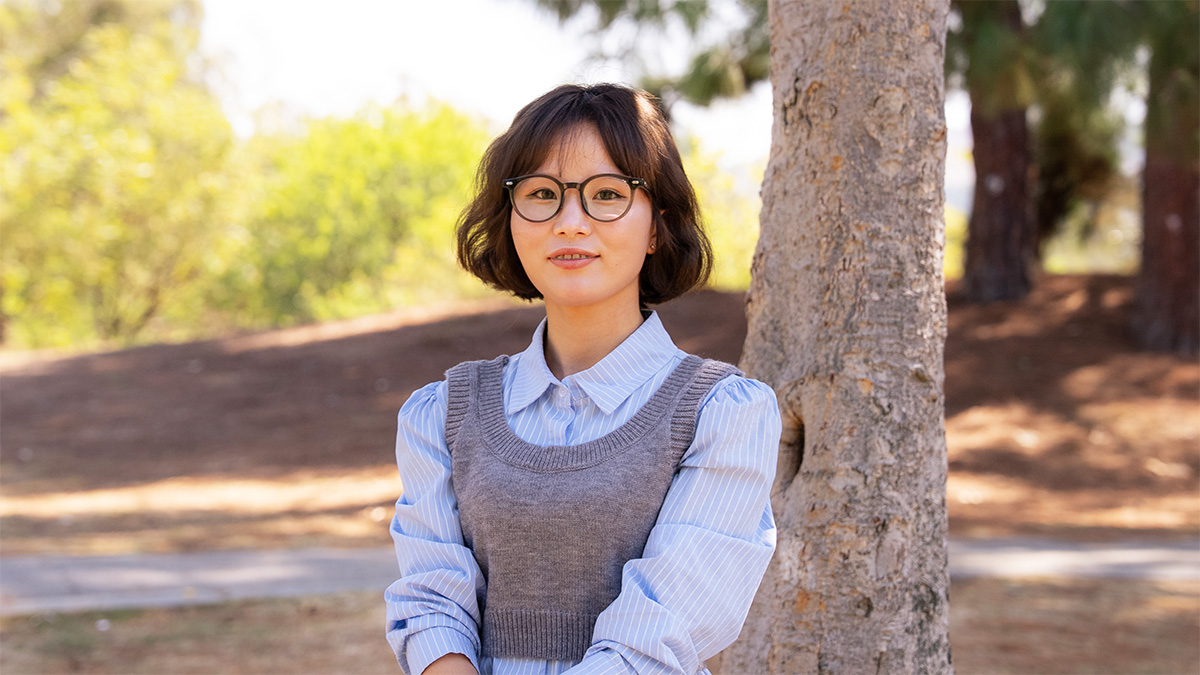
You were never supposed to know my name, see my face, or hear my story. Because I was one of 26 million lives hidden inside North Korea.
I was born in the North Korean capital, Pyongyang. The first time the government decided my future without my consent, I was only a child. My family was exiled to a rural fishing village because of my grandmother’s religion.
In the system we were living in, not even your beliefs or thoughts are truly your own.
On my way to school, youth league officers would inspect my clothes and belongings, punishing me for even a hairpin or a skirt that was a few centimeters too short. At school, we were taught that “we live in the most dignified nation in the world,” but outside those walls, people were collapsing from hunger in the streets.
Careless words overheard by a neighbor could turn into a knock at the door in the middle of the night. The radio played government broadcasts all day long, and searching other frequencies was a risk no one dared to take. This is how the North Korean government maintains control over people. By convincing you that survival depends on submission.

I returned to Pyongyang as an adult. I majored in table tennis at the Pyongyang University of Physical Education and imagined myself making a new life, built on talent and hard work.
But reality was nothing like what I had dreamed. I came to understand a deep, painful truth: In the end, everything was determined by how well you obeyed, not how hard you worked.
Frustration and emptiness built up until I finally decided to leave Pyongyang.
I wanted to help support my mother and aunt, so I moved to the coast to try and build a life of my own. My mother used all of her hard-earned life savings to buy me a small wooden fishing boat so I could start a business harvesting clams.
That boat was more than a way to make a living. It was a daily reminder of her sacrifice, and the depth of their love and trust in me. If the money I earned with my own hands could put even one less wrinkle on her forehead, that was enough for me.
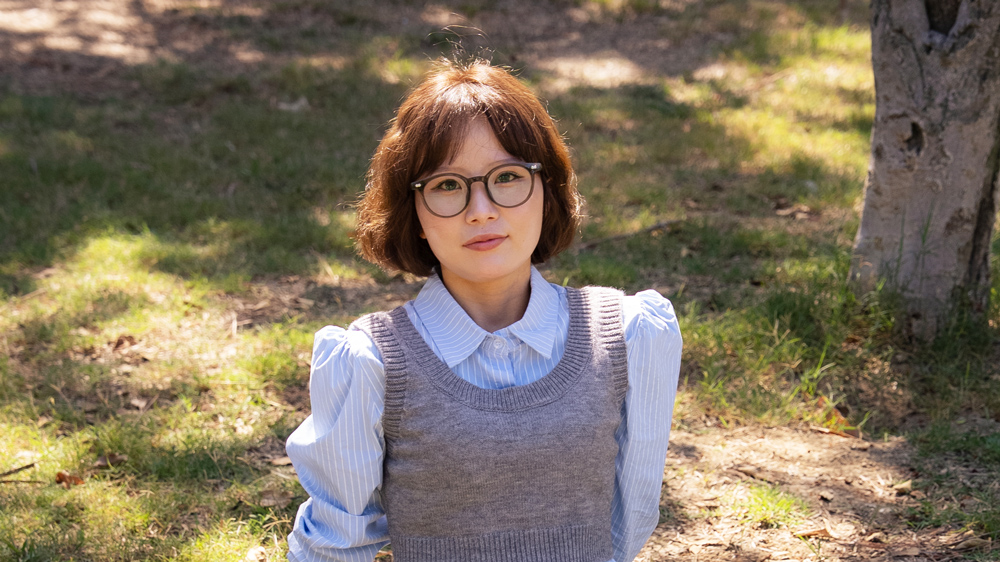
As a boatowner, I woke up early in the mornings to prepare supplies, get the crew together, and encourage them. I inspected the condition of the boat and hired people to help fix the engine and other faulty parts. Although I couldn’t go out to sea because I’m a woman, I was responsible for ensuring the ship operated smoothly.
But the harder I worked, the more government officials came to me—demanding baskets of clams and money. They justified their demands by saying: “The Party orders it,” threatening to punish anyone who refused. Every night I agonized over how to protect my people and keep my business going, and how I should respond. In those moments, I would remember the love and devotion my mother and aunt had poured into me and it gave me strength to persevere.
To escape my reality, at night I secretly watched South Korean TV shows on a television that was smuggled in from China.
My world turned upside down. With my friends who were also watching South Korean media, we would cautiously express our dissatisfaction together while also copying the hairstyles and outfits we saw in dramas. Sometimes, we would even try to mimic South Korean words or accents when talking or texting together.
But under Kim Jong Un, punishments became much more severe. Two people I knew were executed for watching and sharing foreign media. Our lives became harder, control over young people became more intense, and our resentment began to grow.
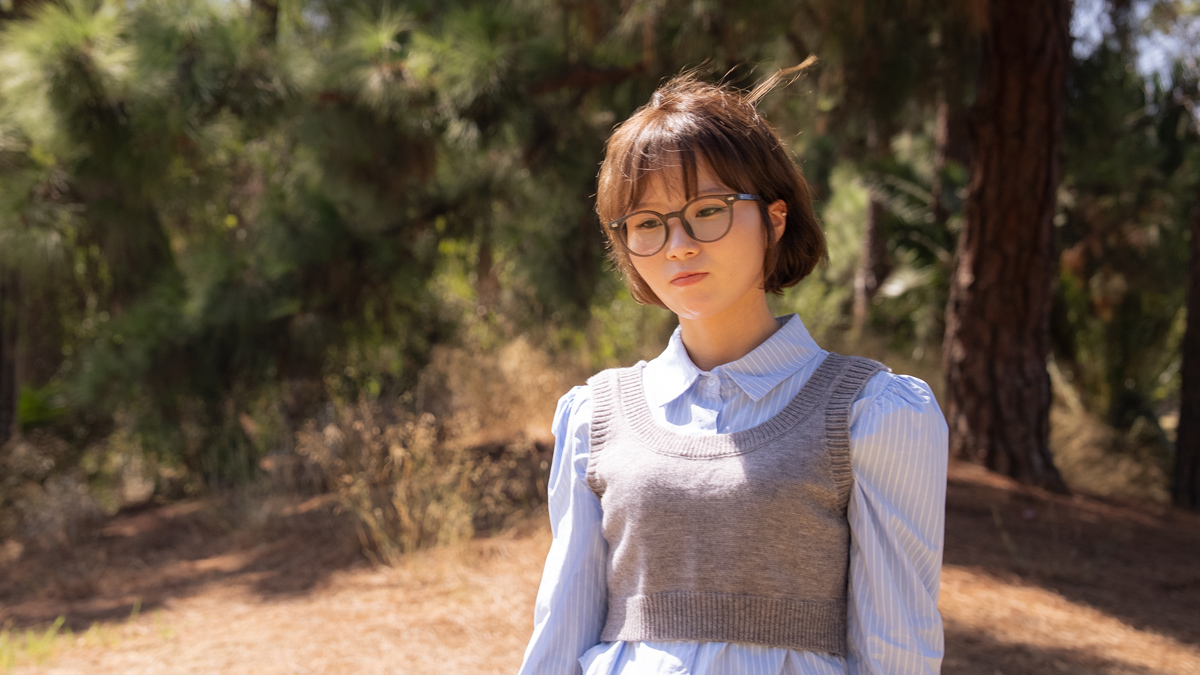
But no matter how much they tried to repress us, frustrated young people like me continued watching forbidden content as a way to forget reality. Foreign media has quietly found its way into North Korea for decades. As I grew up, it began spreading more than ever before, through USBs passed between friends or broadcasts picked up on illegal devices.
Many defectors, like me, can remember the exact episode of a TV show, a specific South Korean song, or even a traffic report, that planted the first seeds of doubt.
Of course, dramas and movies don’t tell the whole story, but they show a life that contradicts everything we were taught. And it makes you wonder: if life is so different out there, why does it have to be this way here?
I realized it doesn’t just show people that different lives exist. It gives them the belief that their life could be different. And that belief gives people the courage to choose a different future.
The thing about information is once you learn something, you cannot unlearn it. I remember watching people on my screen speak freely, laugh openly, and pursue their dreams—things that were unimaginable in North Korea. For the first time, I wondered if everything we were taught might be wrong. That doubt led to questions, and my curiosity became too strong to ignore. Now that I had seen the truth, I could never go back to the person I was before.
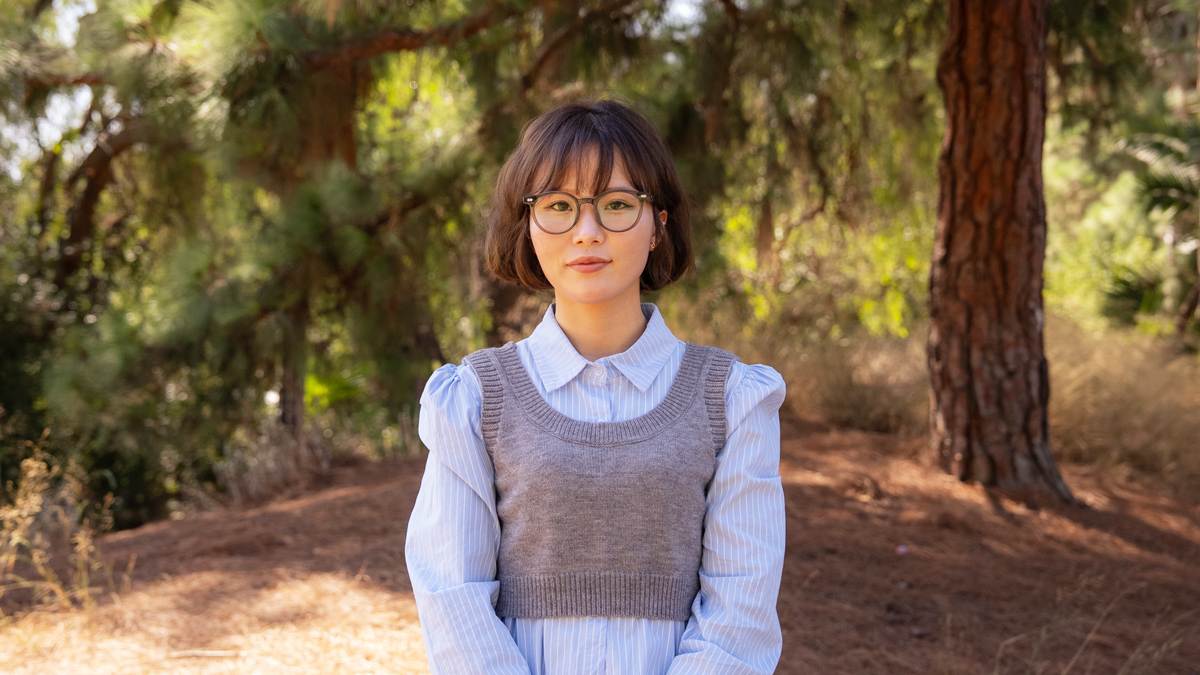
Escaping North Korea cannot be explained by the simple word “leaving.” This was especially true for me because I escaped together with my mom and my aunt. They had placed their trust in me when they gave me money for that boat. And now I was placing my trust in that boat to carry us across the sea to freedom.
I planned our escape in complete secrecy.
I bought a smuggled GPS device from China, carefully traced our route, observed the currents and tides, learned the patrol schedules of the guard boats, and figured out the blind spots of the coastal guard posts. I meticulously checked the condition of the boat and quietly prepared all the food and supplies we would need. I trained my body for the wind and the waves, and my mind for the terror of being caught.
Some nights I woke up in a panic. Other times my confidence crumbled and I thought, maybe I should give up and just accept the life I have. But in those moments, I imagined what waited at the end of the journey.
I wasn’t leaving just to stay alive. I was leaving so that I could live like a human being.
On the night we left, we climbed into my boat and pushed off into the dark water. I gripped the rudder and let the current carry us south, carefully navigating around the guard posts and patrol boats who were on the water looking for people like us.
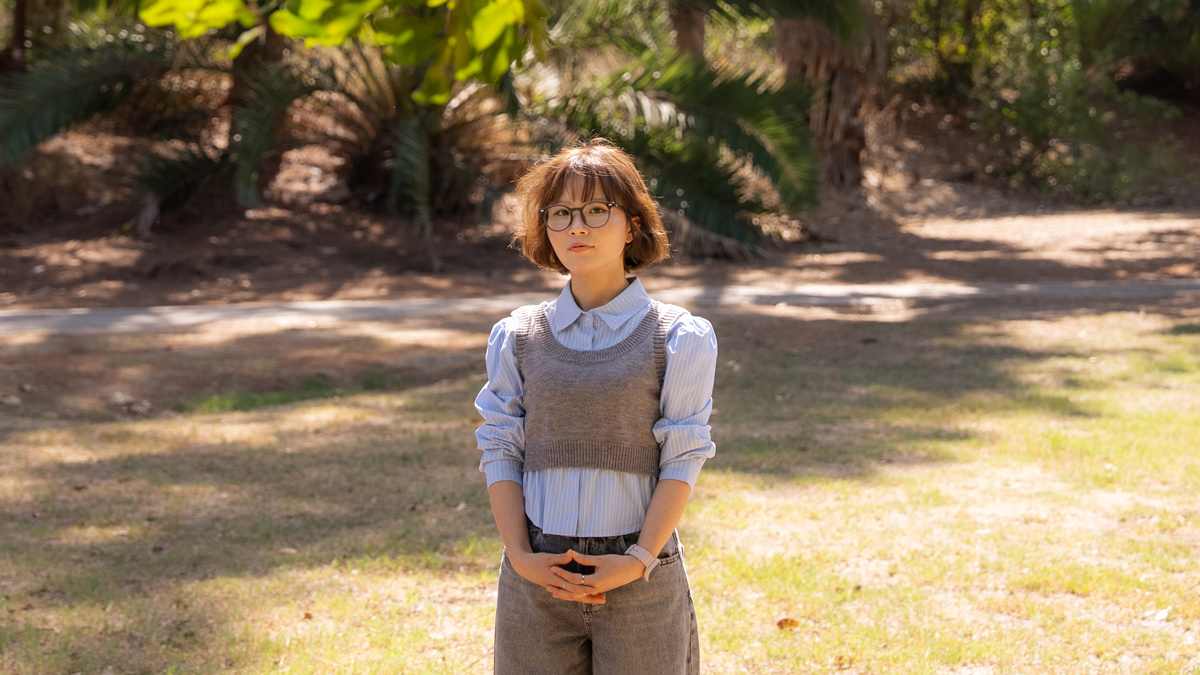
I knew what would happen if we were caught. Arrest. Endless investigations. Humiliation. Public trials. Political prison camp. And the possibility that I might lose the people I loved most in the world.
My mother and aunt were trembling with fear. I had to hide my own fear to tell them what I could only hope. We will survive. We spent the night being tossed back and forth on the East Sea. Black waves lifted our boat like a toy before smashing it down again. Every crash sent water over the sides and threatened to swallow us up.
Suddenly, a patrol ship appeared. Its lights stabbed the water, blinding us, and started coming closer and closer. It was coming for us. My chest pounded so hard I felt it might burst. I thought of the sleeping pills we had brought.
We had agreed that if capture became inevitable, we would rather take our own lives. It was a fate we preferred to execution or prison camps. As the coast guard closed in, I wondered, is it time for the pills?
But I refused to give in. We were so close. I steered away from the searchlights, surrendered the boat to the churning water, and pushed on forward.
Suddenly, the patrol vessel stopped and turned back around. They could no longer chase us. We had reached the maritime border. The sea calmed, as if it was welcoming us to freedom. And as the sun rose, we saw the outline of land.
A South Korean fisherman, hearing radio reports that North Korean patrols were in pursuit, realized we were the boat being chased. He steered his boat toward us and said, "Welcome. You are safe now."
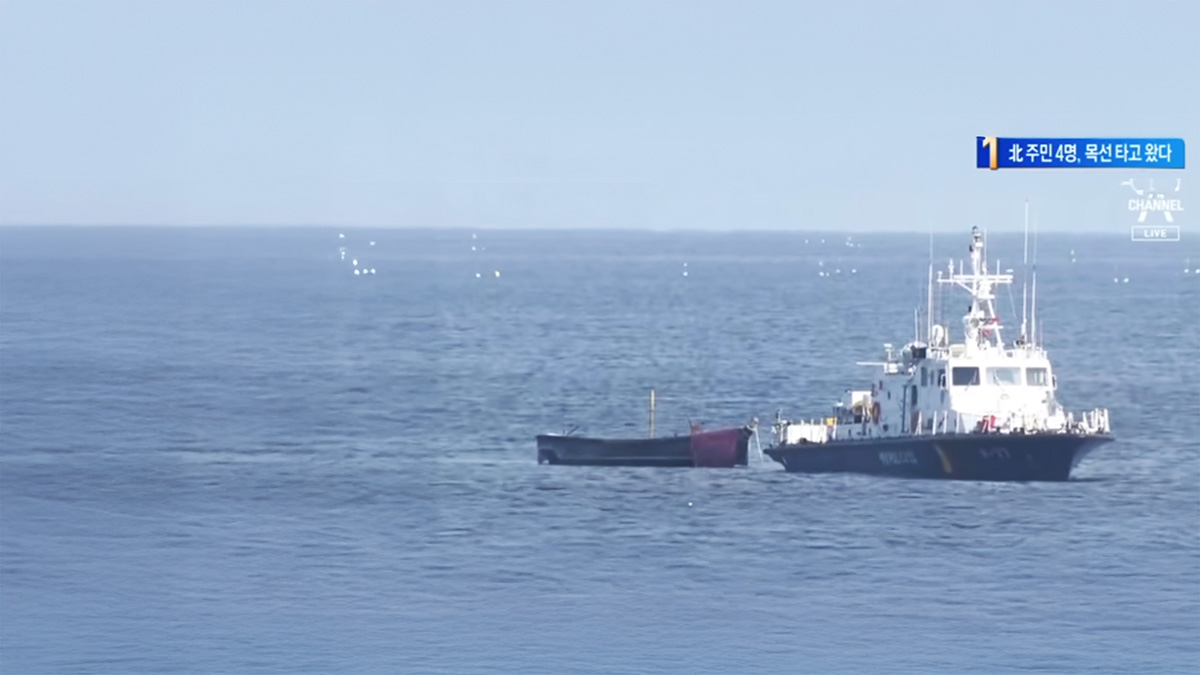
It’s been almost two years since we arrived in South Korea.
I still remember moving into our apartment and using a showerhead for the first time, experiencing hot water flowing straight from the tap. I couldn’t believe it. That day, my mother, my aunt and I took turns showering, laughing, and saying to each other, “So this is what a human life feels like.”
For the first time in my life, I could choose my studies, my job, my clothes, my hobbies—even the way I spoke—for myself. It felt like an entirely new world. We were being reborn, leaving behind a past of silence and control for a life with dignity and a future we could choose ourselves.
My mother began studying for a professional certification. And my aunt enrolled in social welfare classes to help others. I studied hard and was recently accepted into Ewha University. I have also been active in North Korean human rights activism and I even started a YouTube channel to show the world what it looks like to start a new life in South Korea.
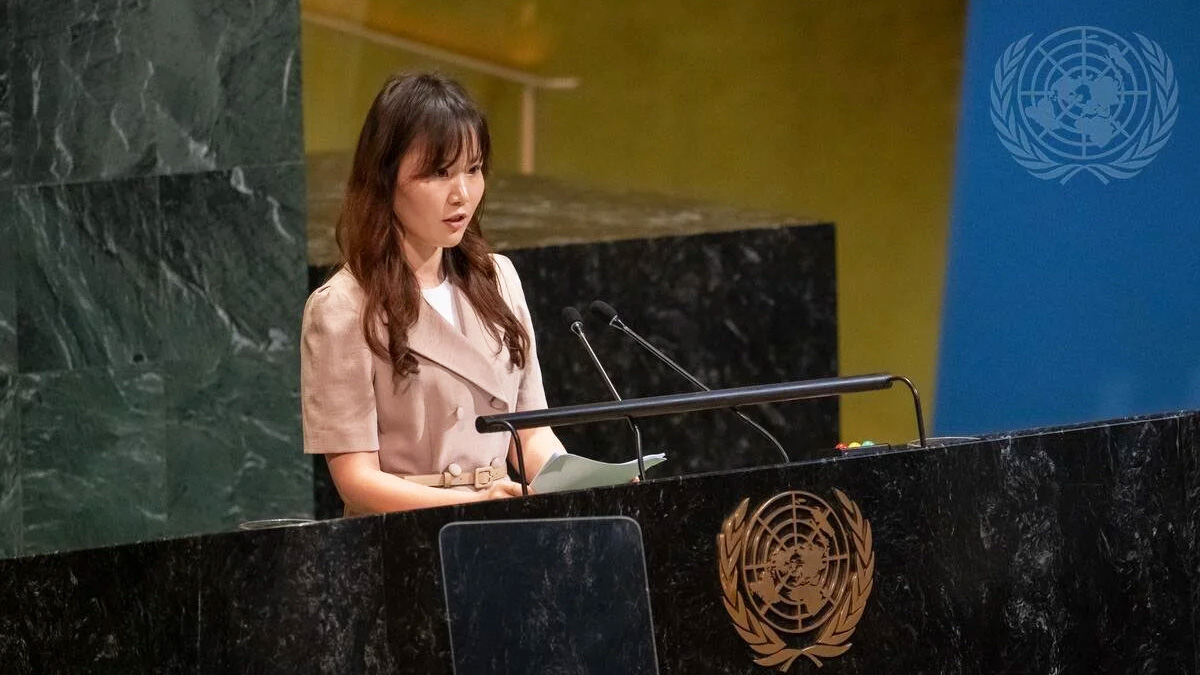
Hope is dangerous for the North Korean government. Millions of people live with anger and sadness, but even more live in resignation. Most do not realize their rights are being violated—they don’t know what “rights” are. I once believed it was normal for the state to control every part of our lives. I thought every country lived this way.
But the moment you realize life could be different, hope begins to take root. And once hope exists, change is no longer unimaginable.
My dream is that someday North Korea will be a place where young people choose their own paths, where no one is punished for their words, and where every person lives as the true owner of their life. While so much of North Korea’s reality is dark, change is already happening. And what sparks that change is information. A single truth from the outside world, a glimpse of what life could be, can plant a seed of doubt, or ignite a spark of hope.
That’s why I speak out. If I don’t tell my story, who will tell it for me? If I stay silent, will the death of my friends, and the suffering and starvation my family endured be forgotten?
Right now, in North Korea, there is someone just like me—sitting in a dark room, secretly watching a South Korean broadcast, quietly wondering: Could I also live like that?
I want my story to prove that this hope can become a reality. I want to stand in the middle of that change. Not just as someone who escaped to enjoy freedom, but as someone determined to one day share that freedom with all North Korean people.
Freedom is not given, but it is something we can achieve. With your support, we can write a future where all North Korean people are free.
Foreign media gave Gyuri a glimpse of the outside world—and the courage to seek freedom.
Increasing North Korean people’s access to outside information is one of the most effective levers for change in the country. And that is exactly what we’re doing at Liberty in North Korea
In partnership with North Korean defectors and engineers, LiNK develops tailor-made technology, tools, and content that help people inside the country access more information more safely. These glimpses into the wider world build people’s resilience to the regime’s propaganda, and emboldens them to imagine a different future for themselves and their country.
Help fuel work that’s directly supporting North Koreans driving change on the inside.




